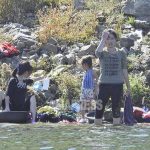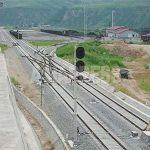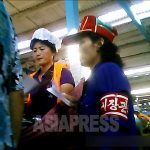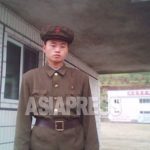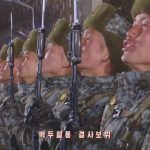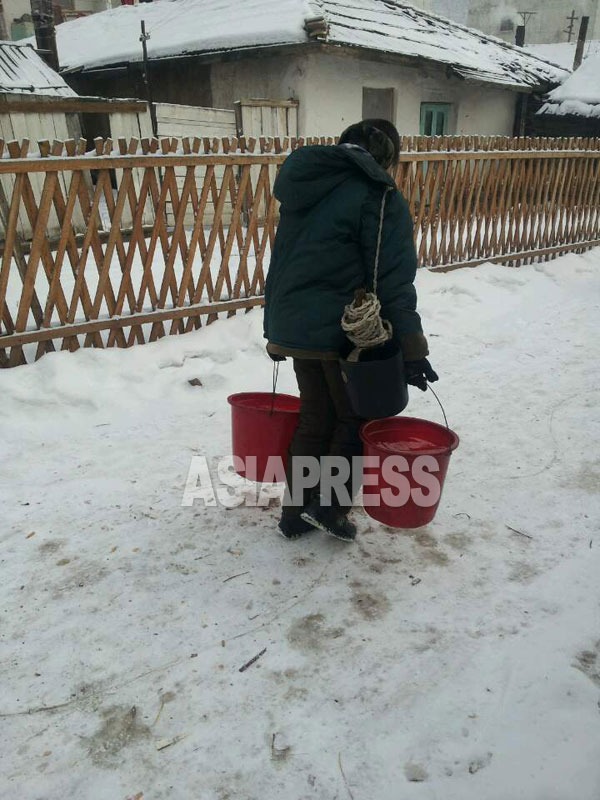
◆ Excessive Coronavirus Measures Cause Sharp Decline in Cash Income
Winters in northern North Korea are cold. In the upper reaches of the Tumen River and Yalu River, where the elevation is high, it is common for the temperature to even drop below 30 degrees Celsius during the cold season.
"It's freezing this year. In North Korea, there is a saying, 'we must live together when it’s cold.' Some families live with others only during the winter as they cannot afford to buy firewood, and some people become very skinny because they are refraining from buying food."
This is what our reporting partner living in Hyesan, the central city of Ryanggang Province on the upper reaches of the Yalu River told us.
For ordinary people, the biggest concern in winter is heating. Whether it is an apartment or a single house, most use coal or wood-fired floor heating (Ondol). In the past, low-cost coal was rationed by the government, but this almost completely collapsed in the 1990s. So instead, residents generally purchased coal from merchants in cash. Then, they add water and knead it to make briquettes.
The big problem now is that there is no money. The Kim Jong-un regime's extreme measures against the coronavirus have exacerbated the economic slump for the past two years. Many ordinary people's cash income has plummeted due to poor business and a lack of work opportunities. Vulnerable groups, such as elderly households, have even died of hunger and disease. In addition to the above, people are burdened with collecting firewood in winter.
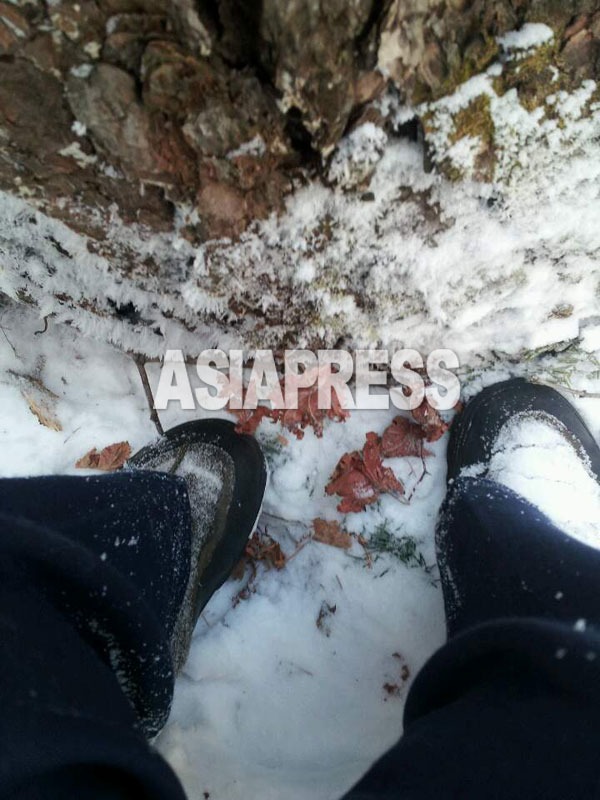
◆ Unusual Implementation of Coal Rationing
In January, at the beginning of the severe winter season, the authorities decided to distribute coal for heating to workers through factories and enterprises.
"They started rationing 500 to 800 kilograms of coal per worker, saying 'it is a favour of the Party.' The price is the national price set in the past, which is deducted from the workers' salaries, but it is very cheap, so everyone welcomes it," said our reporting partner.
Even state-owned factories and enterprises are not supplied coal for free by coal mines and coal companies. Therefore, the government issues "coal vouchers" to state-owned companies, guaranteeing that it will cover the costs, and the coal company then approves the supply. The coal company next hands the voucher to a bank or state agency for later settlement. This is the old "socialist method" that has long since become obsolete.
However, this time, the responsibility for transporting coal lies with each workplace. Since it has to be picked up, each workplace collects transportation fees from its employees to arrange for a truck from a transportation company. In addition, companies are selling coal to merchants to raise money for transportation.
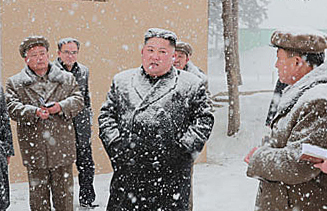
◆ Households without workplace employees have no option but to buy in the market
There is a big problem for those who do not have a job. For example, housewives, who earn their living mainly by trading, as well as retirees have to buy coal in the market, as there will be no coal ration for them this time.
"Even so, the price of coal in the market has been falling. Until the end of last year, the price of coal was 200 RMB per ton, but now it is 170 RMB per ton. Companies that receive rations sell it on the market to make cash, and the price has become cheaper. Its 'wholesale price' is 130-140 RMB."
※10 RMB is about 1.57 USD.
Along with coal, firewood is another necessary fuel for residents. However, the Kim Jong-un regime, which emphasizes protection of the forests, has imposed a strict ban on cutting down logs for firewood and has tightened checkpoints on the roads leading to and from the mountains so that most of what is sold in the market are small shrubs and dead branches, and the price of raw wood with high calorific value has skyrocketed.
North Korean winters are long, and heating will be needed until late April (Kang Ji-won).
※ASIAPRESS contacts its reporting partners in North Korea through smuggled Chinese mobile phones.
- <Article Contribution> Why does Kim Jong-un keep launching missiles? Exploring the Truth and Objectives (2) Amazing development speed, but mass production is not easy. (2022-02-11)
- <Inside N. Korea> Fear and Tension among the Police: Authorities Order the Eradication of Bribery and Relentless Punishment. Police in the Field are Perplexed and Resist it. (2022-02-10)
- <Article Contribution> Why does Kim Jong-un keep launching missiles? Exploring the Truth and Objectives (1) There was advance notice and careful preparation. (2022-02-07)
- <Interview with North Korean Residents> "Missile launches are pressure on the U.S. More should be done," People Say. (2022-02-05)
- <Inside N. Korea> Plummeting Won Causes Market Panic: Authorities Crack Down on Black Market Money Changers Amid Fears of Inflation (2022-01-31)
